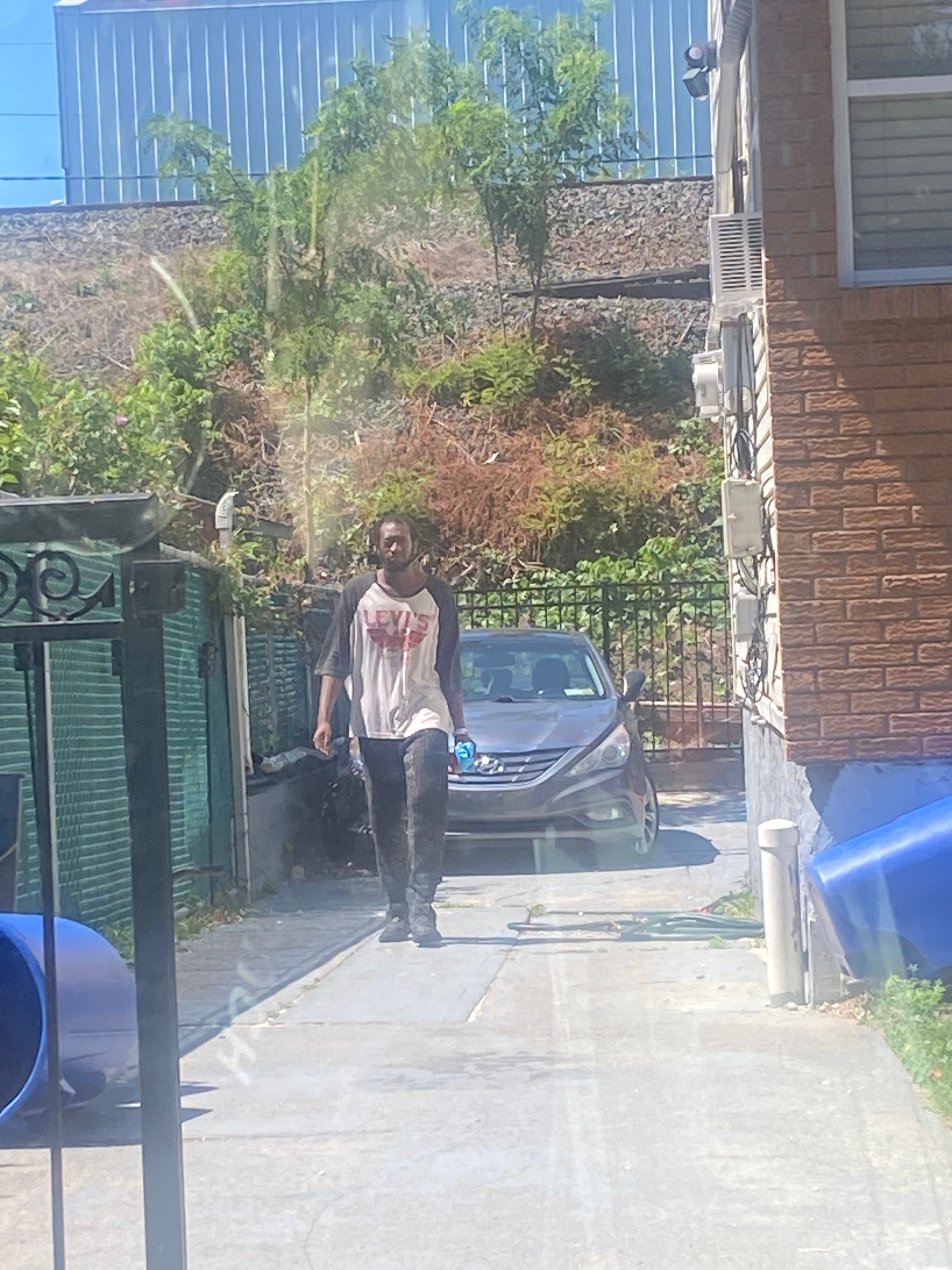Airbnb host has been fighting to get squatters out of her home for months. The company – and the cops – say there’s nothing they can do.

A “professional squatter” has taken over a New York City family’s home and now refuses to leave the property, in every host’s worst nightmare.
The renter moved into the Airbnb this spring and has forced the homeowner — a veteran correctional officer — into an untenable situation she says the company has not been willing to help fix.
“They’ve got two dogs, there’s feces and stuff on the floor, it’s a mess,” superhost Tekecia Darden told The Independent. “Airbnb is saying there’s nothing further they can do, besides telling me to call the cops.”
However, a quirk in New York law means authorities’ hands are also tied, turning Darden’s day-to-day life into a waking nightmare.
In fact, Darden’s unwanted guests are trespassing, according to her attorney, E. Dubois Raynor.
“Per the Airbnb agreement, they were lawfully admitted to the property,” Raynor said in an email. “However, as a legal matter, the civil action sounds that in overstaying their license they are more analogous to trespassers than squatters. Airbnb’s lack of mitigation to situations such as these, since it could happen to anyone, is absolutely astounding.”
An Airbnb spokesman on Monday declined to comment, citing active litigation.

The surreal state of affairs can be traced back to April 18, when Maryam Shaikh booked a room at Darden’s house in Jamaica, Queens, according to a lawsuit Darden filed in New York State Supreme Court on June 7, some three weeks after Shaikh’s agreed-upon check-out date.
Shaikh paid Darden $2,546.25 for a 30-day stay, via the Airbnb website, and duly made herself at home, the complaint states.
“However, when May 18, 2024, came, Defendant Shaikh and her family of, effectively, squatters, which included her husband or boyfriend, refused to leave the Premises,” it says. “Upon investigation, Plaintiff came across evidence, which suggested that the Defendant Shaikh is a professional squatter, aided and abetted by the Defendant Airbnb.”
Darden said on Monday she didn’t have any sort of preexisting relationship with Shaikh, who also moved her three children into the home, and that she was “just somebody that booked through Airbnb.”
Once Darden realized she had been saddled with a guest who wouldn’t vacate the premises, she hired an investigator to look into Shaikh’s past. Darden said she was informed that Shaikh and her associates had a long history of similar behavior, and that “they’ve been in 10 different places within the last three years.”

Shaikh did not give a reason for why she was staying, just that “she wasn’t moving and I’d have to go to court to get her out,” Darden said, adding Shaikh freely uses the kitchen to cook for herself.
Both Shaikh and Airbnb are at fault, according to Darden, whose complaint accuses Shaikh of duping her from the get-go, claiming the renter “knew that she intended to squat and remain beyond her [check-out date].” Airbnb, for its part, “purposefully failed to undertake a thorough and meaningful examination of the Defendant Shaikh for purposes of her professional squatting activities,” the complaint alleges.
“So far, there has been no progress,” Darden told The Independent. “They just basically came in and they’re refusing to leave. I asked Airbnb if they had anything in place for squatters, and they said yes, they had a whole team that works on that. But when the time came, and they finally escalated the case to the higher-ups, all they told me to do was call the police and have the police remove them.”
Yet, when Darden tried to get the police involved, she said they informed her that “they can’t get involved once it’s been 30 days, so [Shaikh and her family] have been here ever since.”

Airbnb has an entire page on its website dedicated to issues that can arise from 30-day stays, suggesting that the practice has created problems before.
“In most states and localities in the United States, guests who stay in a home or apartment for one month or longer — the exact number of days depends on jurisdiction — may establish rights as a tenant,” it says. “Generally, this means that local tenancy laws could protect them, and you may not be able to remove them from your property without proceeding through required eviction processes in court.”
In New York, as well as California and Illinois, a “residential tenancy may be created after 30 consecutive days of occupancy,” the page informs hosts. “… These situations are incredibly rare, but if they happen, we’ll work with you to try and help resolve the problem with your guest.”
Based on other Airbnb hosts’ experiences with squatters, Darden may be facing an uphill battle in getting Shaikh evicted anytime soon.
In Southern California, a “serial squatter” who booked a 60-day stay through Airbnb wound up living in their host’s guesthouse, rent-free, for more than two years before finally packing up and leaving. In June, an Airbnb host in North Carolina was unable to roust long-term guests at the end of a planned seven-month stay, finding that even a warning from police was insufficient to get them out.

“We will vacate the property when you filed the proper paperwork with the civil magistrate for an eviction, for we are legal residents of this home,” the renters wrote on a handmade “no trespassing” sign they affixed to the front door following the visit from cops.
Airbnb has thus far not been helpful, the homeowner told WTVD-TV, the Raleigh-Durham ABC affiliate. When the SoCal guest extended her stay, she and the homeowner reportedly made that agreement between themselves, outside of the Airbnb system, removing the company from the equation before things went sour.
Darden, for her part, told The Independent that once Airbnb said “there’s nothing they can do, they didn’t follow up, nothing.” She said she was informed by an Airbnb representative that the only course of action, for now, would be to remove her listing from the site until she is able to remove Shaikh from the property.
“These are the first people I let stay for 30 days,” Darden said, adding that she is no longer willing to do business with Airbnb.
Darden, who is now living at another location, is asking a judge to evict Shaikh from the home, and order her to cough up $200,000 in compensatory and punitive damages, plus legal expenses.
Shaikh, who does not have an attorney listed in court records, did not respond on Monday to a voicemail seeking comment. She and Airbnb have not yet filed responses to Darden’s claims.







